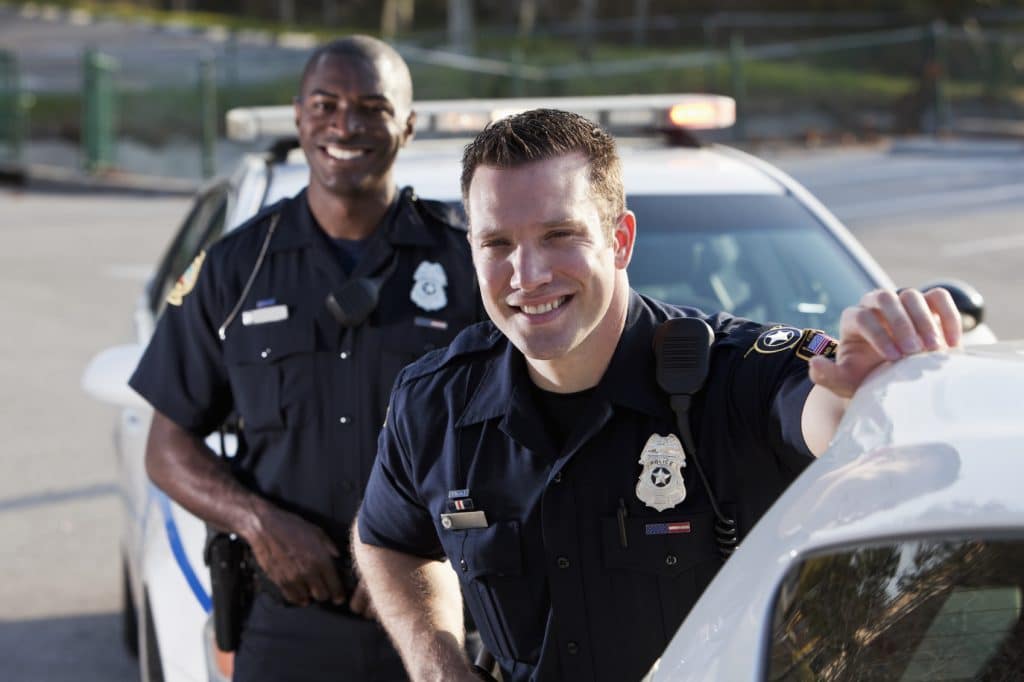For many, the thought of introverts protecting upstanding citizens from bad guys sounds preposterous.
After all, weren’t they the ones being bullied and pushed around in school?
How could they ever protect anyone else if they couldn’t protect themselves?
And some of the fear experienced in their youth may carry over into adulthood.
So, why would introverts, specifically INTJs, be ideal for law enforcement?
Essentially law enforcement requires officers to solve problems, unlike the dramas played out on TV.
An effective decision-maker isn’t required to be extroverted, big, or brawny.
In this regard, INTJs have the discipline, mental strength, and strategic thinking skills to be effective at policing and security. Additionally, law enforcement allows a great deal of independence.
Many departments maintain one-person vehicle patrols, which means you are alone most of a shift unless you require backup.
And while there might be instances where physical strength is required, most of the time, mental strength is more important.
The most significant consideration for anyone deciding to become a societal protector is if you want to risk danger.
As an INTJ, I had to ask myself the same question when I joined the Atlanta Police Department. The training encouraged me as I went through the police academy. More importantly, I was leveling up to the challenge.
The police curriculum could be as difficult as any course I had taken in college and graduate school.
In my wildest dreams, I could never have imagined chasing down bad guys and putting handcuffs on them.
So, I was mentally and physically challenged in ways that built my self-confidence.
When I finally hit the streets of Atlanta, was I afraid?
Absolutely.
However, the training and resolve to excel got me through the fear.
To this day, I believe that law enforcement and military service test your inner fortitude and reveal who you are.
And you can’t fake who you are.
When I say INTJs can become protectors in society, I mean it.
And here’s why:
INTJs have moral imperatives.
Many INTJs live a “Black and White” existence. There is a minimal gray area in their thinking. In law enforcement, either the law was broken or wasn’t. Either the actions perpetrated by an individual meet the criteria of a crime, or it does not.
This clear-cut sense of right and wrong makes INTJs ideal for law enforcement.
INTJs’ moral imperatives are founded on their earlier experiences of being bullied and disempowered. They realized early that the world respected strength over weakness.
And since they were once weak, they developed an urge to protect people in similar situations.
They have a vendetta against those who transgress, but not indiscriminately. They merely want to push transgressors back across the line toward civility and respect for humanity.
INTJs are strategic.
Although it would be logical to peg INTJs as natural police investigators, a variety of problem-solving occurs at the officer rank.
Police departments with limited resources require officers to wear many hats. In many police departments, particularly smaller ones, police officers handle emergency calls and follow-up investigations. They are like Swiss army knives based on the needs of that department.
INTJs could excel in this environment because outthinking criminals and following up on cases are in their wheelhouse. This experience level is excellent for rising through the ranks in investigation units and special operations.
INTJs are courageous.
Once INTJs determine that risk for societal betterment is worth taking, they will do it despite the fear.
It has been said that courage is the existence of fear and a willingness to act despite it.
INTJs may carry the same fear throughout their lives as they did in childhood but channel those fears into progressive action.
They aren’t inclined to use their power to bully as a form of vengeance. Their high intellect and inner fortitude allow them to be cautious and mindful of the boundaries of transgressions.
They are too responsible to break their moral codes.
INTJs are social scientists.
Law enforcement is an excellent opportunity for INTJs to study people closely and personally.
Policing allows INTJs to satisfy their curiosity about the machinations of human nature.
Police officers serve as therapists, resource providers, and politicians daily.
By the end of a career, the average police officer has seen patterned human behavior repeated numerously.
INTJs may enjoy learning the reasoning behind these behavior patterns until they become repetitive. With such repetition, a need may arise to transition into another section within the department or leave the profession altogether.
INTJs have an exit strategy.
INTJs are intelligent enough to determine when the value they have bestowed upon society is sufficient.
Like many things, INTJs view life as an intellectual experiment. As social scientists, once the experiment has provided core principles and conclusions, it becomes necessary to take on new challenges.
As a result, INTJs won’t allow themselves to get burned out. They will pursue another interest while remaining grateful for the lessons learned.
For INTJs who want to take the challenge, life and people will never be the same.
—Sean Michaels
